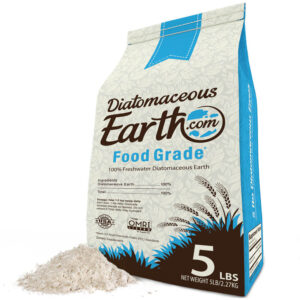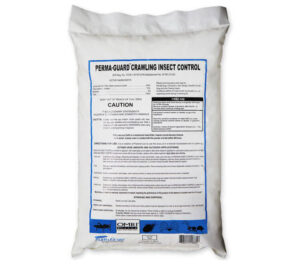When it comes to natural substances that promise to keep your home, garden, or chicken coop clean and pest-free, Zeolite and Diatomaceous Earth (DE) are two contenders that often come up in the conversation. Both have unique properties that make them useful, but they serve different purposes and work in different ways. I’ve used both in my own DIY projects—from keeping my garden soil healthy to managing pests in my chicken coop—and I’ve seen firsthand how each one performs. Let’s dive into the details of Zeolite vs. Diatomaceous Earth to help you decide which one is right for your needs.
What Are Zeolite and Diatomaceous Earth?
Zeolite
Zeolite is a naturally occurring mineral formed from volcanic ash that reacts with alkaline groundwater. It has a porous structure with a high surface area, giving it incredible absorption and ion-exchange properties. Zeolite is often used in water filtration, odor control, soil conditioning, and even as a feed additive for livestock.
- How it Works: Zeolite works through adsorption and ion exchange. Its porous structure traps gases and liquids, making it effective at reducing odors and moisture.
- Uses: Commonly used for odor control in pet litter, soil conditioner in gardening, water filtration, and even livestock feed to reduce odors and toxins.
- Safety: Non-toxic and safe for use around pets, humans, and livestock.
Diatomaceous Earth (DE)
Diatomaceous Earth is a fine, powdery substance made from the fossilized remains of tiny aquatic organisms called diatoms. It is best known for its pest control properties. Food-grade DE is safe for use around humans and animals, while pool-grade DE, which is heat-treated, is not safe for these uses.
- How it Works: The sharp, microscopic edges of DE particles cut through the exoskeletons of insects and pests, causing them to dehydrate and die.
- Uses: Commonly used for pest control, especially for mites, fleas, ants, and other insects. It can also be used in gardening to aerate soil and control pests.
- Safety: Food-grade DE is safe for use around pets and livestock, but care should be taken to avoid inhaling the fine dust.
Key Differences Between Zeolite and Diatomaceous Earth
| Feature | Zeolite | Diatomaceous Earth (DE) |
|---|---|---|
| Primary Use | Odor control, moisture absorption, filtration | Pest control, soil amendment, moisture control |
| Mode of Action | Adsorbs gases and liquids; ion exchange | Physically damages insect exoskeletons |
| Safety | Non-toxic and safe for all applications | Safe when using food-grade DE; avoid inhaling dust |
| Application Method | Spread or mix into soil, water, or bedding | Dust in infested areas or mix into soil |
| Effect on Pests | Minimal direct impact on pests | Highly effective against insects and mites |
| Soil Improvement | Improves soil drainage and nutrient retention | Aerates soil and helps with moisture retention |
| Indoor/Outdoor Use | Effective for both indoor and outdoor use | Effective for both indoor and outdoor use |
My Experience: Choosing Between Zeolite and Diatomaceous Earth
When my chicken coop started to smell musty and I noticed that the bedding was retaining too much moisture, I decided to give Zeolite a try. I mixed a few scoops into the bedding and spread some around the coop floor. Within a day, the odor was noticeably reduced, and the bedding felt drier. Zeolite’s ability to adsorb moisture and neutralize odors really helped keep the coop fresh, and I continued using it regularly as part of my coop maintenance routine.
However, when I noticed mites on my chickens, I knew I needed something more aggressive for pest control. That’s when I turned to Diatomaceous Earth. I dusted the bedding, nesting boxes, and even sprinkled a small amount on the chickens themselves. Over the next few days, the mite population dramatically decreased, and my chickens were much happier and healthier. The DE worked well for pest control, but it didn’t help much with odors or moisture control.
Pros and Cons: Zeolite
Pros
- Excellent Odor Control: Quickly neutralizes ammonia and other odors.
- Great Moisture Absorption: Keeps bedding dry and reduces dampness in coops or cages.
- Soil Conditioner: Improves soil drainage, aeration, and nutrient retention.
- Long-Lasting: Doesn’t need frequent reapplication.
- Non-Toxic and Safe: Safe for use around pets, livestock, and in gardens.
Cons
- Not Effective for Pest Control: Does not kill insects or mites.
- Requires Proper Mixing: Needs to be mixed into soil or bedding to be effective.
- Can Be Costly: Depending on the application, larger quantities may be needed, which can be expensive.
Pros and Cons: Diatomaceous Earth
Pros
- Highly Effective Pest Control: Kills insects and mites through physical damage.
- Natural and Non-Toxic: Safe for use around pets and livestock when using food-grade DE.
- Multi-Use: Can be used for pest control, soil aeration, and moisture control.
- Soil Amendment: Helps with water retention and aeration in gardening.
Cons
- Potential Respiratory Irritant: The fine dust can cause respiratory irritation if inhaled; a mask is recommended during application.
- Can Be Messy: Fine powder can get everywhere and may need regular cleaning.
- Slow Moisture Control: Not as effective as Zeolite in moisture and odor control.
Which is Better for You?
Choosing between Zeolite and Diatomaceous Earth depends on your specific needs:
- If you are looking for odor control and moisture absorption, Zeolite is the clear winner. It’s perfect for chicken coops, pet areas, and even gardening, where it can help with soil conditioning.
- If you need to control pests like mites, fleas, or ants, Diatomaceous Earth is the way to go. It’s a natural, non-toxic option that works effectively against a wide range of insects.
Tips for Using Zeolite and Diatomaceous Earth Together
Sometimes, combining both Zeolite and DE can create a comprehensive approach:
- Use Zeolite for Moisture and Odor Control: Spread Zeolite in bedding, litter boxes, or any area where moisture and odors are an issue.
- Use DE for Targeted Pest Control: Apply DE around entry points, in bedding, and directly where pests are seen to kill them effectively.
- Mix in Soil for Garden Benefits: In gardening, a combination of Zeolite and DE can improve soil health by enhancing aeration, drainage, and pest control.
- Regular Reapplication: Both products may need to be reapplied periodically, especially after heavy use or rain.
Conclusion
Both Zeolite and Diatomaceous Earth have their strengths and are excellent natural solutions for different problems. If odors and moisture are your primary concerns, Zeolite’s absorbent properties are unmatched. For pest control and natural, non-toxic treatment of mites, fleas, and other insects, Diatomaceous Earth is unbeatable. In many cases, using both in a complementary way can provide the best of both worlds and keep your environment clean, fresh, and pest-free!


